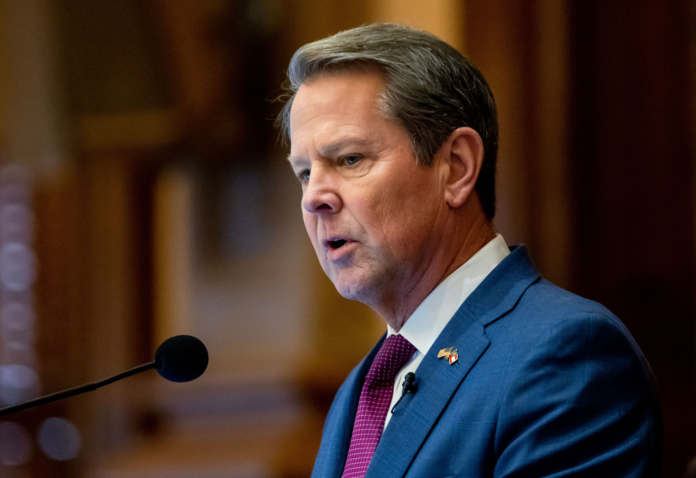Georgia Governor Brian Kemp’s bold move to offer a conservative twist to Medicaid expansion through work requirements has sparked intense debate, not just about healthcare policy but about fiscal responsibility. The “Georgia Pathways to Coverage” program, designed as an alternative to the Affordable Care Act’s Medicaid expansion, has so far proved to be a costly venture with questionable outcomes. With a staggering $26 million already spent, over 90% of which went to administrative and consulting fees, the program highlights the complexities and challenges of implementing work requirements for Medicaid eligibility.
Since its launch in July, Georgia Pathways has seen a mere 3,500 sign-ups—a fraction of the potential beneficiaries if the state had opted for a straightforward Medicaid expansion. This initiative requires individuals to prove they are working, studying, or engaging in other qualifying activities to receive health coverage, a stipulation that has sparked criticism for creating unnecessary barriers to healthcare.
The debate around Medicaid work requirements is not new; it reflects a broader ideological clash over the nature of social safety nets in America. Proponents argue such requirements prevent dependency on government assistance, while critics see them as punitive measures that complicate access to essential services for the most vulnerable populations. In Georgia’s case, the expenditure has raised eyebrows, especially given the significant portion allocated to non-medical expenses like technology, consultants, and legal fees.
Georgia’s experiment stands out for its legal resilience amid challenges that have dismantled similar efforts in other states. However, its financial efficiency and impact on public health remain contentious. The program’s hefty price tag and low enrollment raise questions about the allocation of taxpayer dollars, particularly when alternative approaches could potentially cover more individuals at a lower cost. The Affordable Care Act’s full Medicaid expansion offers a stark contrast, promising to extend coverage to hundreds of thousands of uninsured Georgians while potentially saving the state millions.
Despite the controversy, Georgia’s Republican leaders remain hesitant to embrace full Medicaid expansion, a stance mirrored in other conservative states contemplating work requirements. This decision underscores the ideological divide in healthcare policy, one that affects millions of Americans living at the margins of the healthcare system.
Critics of the Pathways program, including healthcare economists and policy experts, point to its inefficiency and the barriers it creates for those it aims to serve. The administrative hurdles and the program’s digital infrastructure have been particularly problematic, leading to delays and a bottleneck in processing applications. This inefficiency is not just a bureaucratic issue; it’s a human one, affecting real people’s access to healthcare.
Georgia’s situation is a microcosm of the national debate on Medicaid expansion and work requirements. As the only state currently implementing such a program, its experience offers valuable lessons for policymakers and advocates alike. The question of how to best extend healthcare coverage to low-income Americans remains a pressing challenge, one that requires a careful balance between fiscal responsibility and social equity.
As Georgia continues to navigate the complexities of its Medicaid experiment, the broader conversation about healthcare accessibility and the role of government in ensuring it continues. The “Georgia Pathways to Coverage” program serves as a reminder of the ongoing struggle to find healthcare solutions that are both economically viable and compassionate, ensuring that all citizens have access to the care they need without unnecessary financial burden or bureaucratic obstacles.



